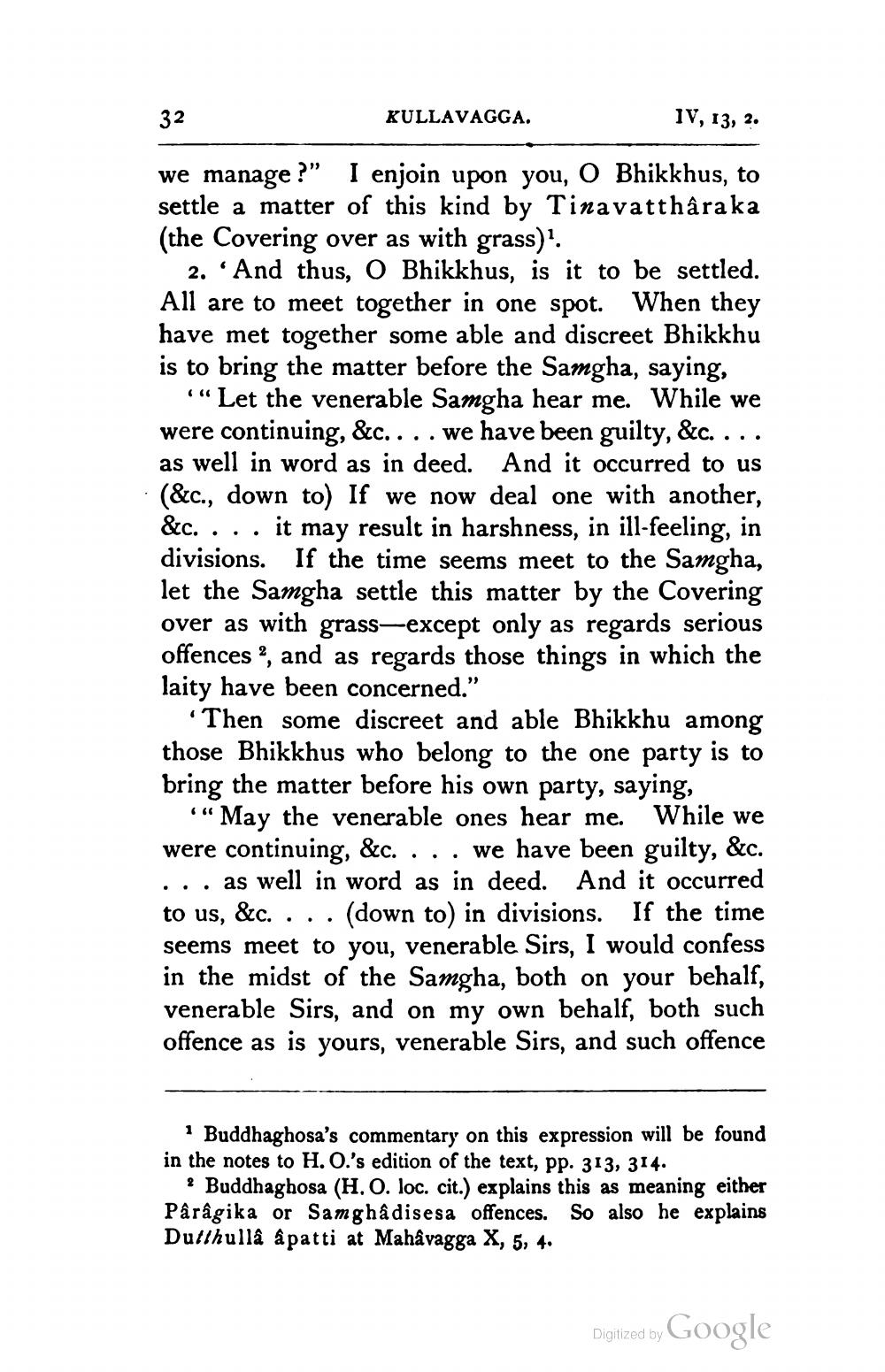________________
KULLAVAGGA.
IV, 13, 2.
32
we manage ?" I enjoin upon you, O Bhikkhus, to settle a matter of this kind by Tinavatthâraka (the Covering over as with grass)?
2. “And thus, O Bhikkhus, is it to be settled. All are to meet together in one spot. When they have met together some able and discreet Bhikkhu is to bring the matter before the Samgha, saying,
“"Let the venerable Samgha hear me. While we were continuing, &c. ... we have been guilty, &c. ... as well in word as in deed. And it occurred to us (&c., down to) If we now deal one with another, &c. . . . it may result in harshness, in ill-feeling, in divisions. If the time seems meet to the Samgha, let the Samgha settle this matter by the Covering over as with grass-except only as regards serious offences ?, and as regards those things in which the laity have been concerned.”
Then some discreet and able Bhikkhu among those Bhikkhus who belong to the one party is to bring the matter before his own party, saying,
““ May the venerable ones hear me. While we were continuing, &c. . . . we have been guilty, &c. ... as well in word as in deed. And it occurred to us, &c. . . . (down to) in divisions. If the time seems meet to you, venerable Sirs, I would confess in the midst of the Samgha, both on your behalf, venerable Sirs, and on my own behalf, both such offence as is yours, venerable Sirs, and such offence
1 Buddhaghosa's commentary on this expression will be found in the notes to H.O.'s edition of the text, pp. 313, 314.
? Buddhaghosa (H, O. loc. cit.) explains this as meaning either Pârâgika or Samgha disesa offences. So also he explains Dutthulla a patti at Mahåvagga X, 5, 4.
Digized by Google




